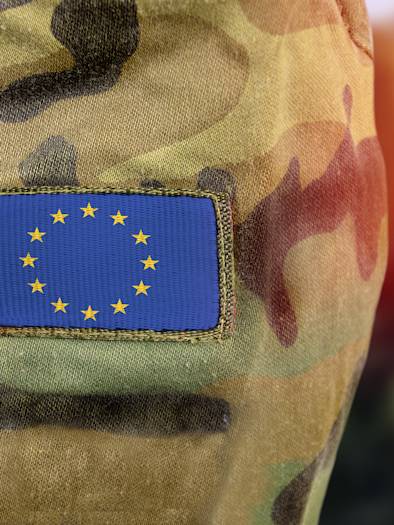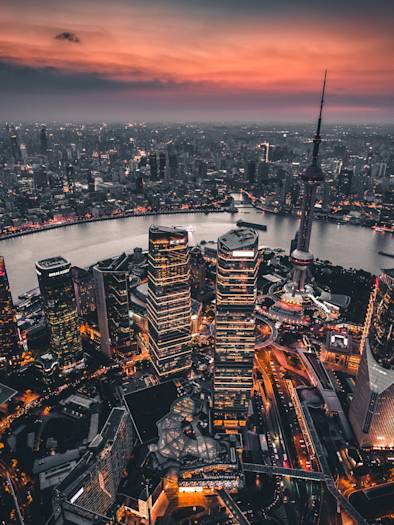
COVID-19, or the end of free trade
As governments across the world have rushed to impose travel restrictions, many are also already looking inward – rhetorically at least – when it comes to essential supplies, rattled by the rapid breakdown of the world’s complex and fragile just-in-time supply chains. H+K Brussels’ Alain Berger, Niels van Velde and George Candon ponder whether reshoring will become the new normal in a post-Covid world.
There has been much comment across conventional and social media on the new normal that will emerge from this crisis. While no-one knows exactly what that will look like, everyone agrees that it cannot be business as usual. But one thing we can be sure of: whatever the prognosis for the development of an effective vaccine against the COVID-19 virus, we will not emerge from this crisis immune to its economic and social consequences.
The crisis has thrown into immediate and sharp relief the end game of a zero-stock, just-in-time supply-chain economic model, when governments scrambled to belatedly source and stockpile the personal-protection equipment and ventilators that have suddenly become the world’s new essential goods.
That frenetic search for products is also forcing manufacturers to sell essential goods nationally, or in some cases even locally. Although subsequently ruled illegal by the European Commission, Germany had initially banned the export of protective medical equipment. Dutch multinational Philips is under pressure from both the American and Dutch governments over the healthcare devices manufactured in the US. The French producer of Plaquenil, Sanofi, is under all sorts of direct and indirect pressure to supply only, or at least in priority, the hospitals and pharmacies of these countries where they produce the drug.
Western governments have mostly demonstrated a shocking lack of preparedness to face a serious health crisis (in comparison to their far-eastern counterparts). They have subsequently rushed to impose travel bans, additional visa requirements, and export restrictions. At the same time the international flows of products and services have ground almost to a halt, causing massive disruption to global trade. The crisis quickly exposed the weaknesses of our complex global supply chains. These often have China-based production at their very heart.
It’s a very human reaction, if not entirely rational or sensible, for people to turn inwards when they feel threatened. This crisis has delivered a triple-whammy of threats – health, financial, societal – all in one go. In such an environment cross-border cooperation, shared resources and harmonisation – the very ideals of trade liberalists – become threats, the problem rather than the solution. They become the bogeymen of cultural and economic nationalists, grist to the mills of doomsday naysayers.
But it’s a narrative that can sway even the most liberal of institutions, even if writ larger than the national arena. Witness European Commission president Ursula von der Leyen’s announcement of new EU guidelines on screening foreign investments, encouraging member states to adopt tools to “protect critical European companies” from buyouts as EU businesses are going through a period of vulnerability.
A bigger shift would be to start reshoring – bringing industrial essential manufacturing and services closer to the user. Under pressure from citizens, governments or regions may decide that local storage of critical supplies is necessary – much as during the cold war. The European experience of storage of critical goods is limited to the defence and energy sectors. It is not certain that we can learn a lot from these examples, save that we should avoid at all costs adopting regional or national strategies. Europeans must not forget that size and cost-efficiency are key in this matter.
The financial support measures for businesses and furloughed and unemployed workers have been decided on a national basis. A coordinated EU-level response has been muted: while the European Commission quickly relaxed state-aid and other such rules to allow member states fiscal flexibility, the inability of its political leaders – national governments – to agree on a common approach more than several weeks into the crisis speaks volumes.
The risk here is again the temptation to privilege a national, and not European, approach. This would mean countries build up their industrial crisis footprint on their own. Such national producers of essential goods will, post-crisis, be creating disruptions on the internal EU market, while costing Member States a fortune in regional or state aid. Local production and storage are one thing. But in post-crisis times economics dictate that products will still make their way to the world market – perhaps even after their expiry date has passed. How to manage the large quantity of stockpiled goods produced domestically, often with state aid support, will be the next challenge.
Here again part of the solution is to build these critical facilities (for both storage and manufacturing) at the EU level. Some EU leaders have already indicated that dependence on economies far away like India and China is not acceptable any longer. Even the liberalist Commissioner for the Internal Market Thierry Breton noted that it is great that Europe has been helped by China but that it also has come up with its own solutions: “The idea is that Europe should be self-sufficient in this production.”
But European self-sufficiency does not exist in a vacuum, and we cannot forget that trading partners like China are massive drivers for the success of many European companies, both when selling integrated products in the internal market and exporting them after adding value in Europe.
While production difficulties are at the forefront of everyday news, services cannot be forgotten. While the European Commission’s updated guidelines from the end of March ensure the free movement of essential mobile workers within the EU includes IT staff, we should not forget that some support is already based outside of the Union. Many businesses that are deemed essential infrastructure are dependent on services based outside of national jurisdictions. That includes not only the computers in a nuclear powerplant, but also the optimisation of robotic manufacturing equipment for the national car industry. Simply put, if offshored IT services grind to a halt due to the confinement of service providers, the effects on European business will be dramatic.
In rebuilding their post-crisis economies European leaders will need to walk the fine line between protection and protectionism. Will we emerge from the COVID-19 crisis to carry on promoting the virtues of dismantling of tariff and non-tariff barriers as a prerequisite to the world economy’s growth and success? Or will the crisis lead us to a regional and nationalist and indeed dirigiste model where governments mandate, finance and protect local essential industries and services, even when not competitive? After travel restrictions, export controls and other measures have been lifted, we will likely witness intense discussions on reshoring. After almost 30 years of trade liberalism, the nation-state seems to be back with a vengeance.







